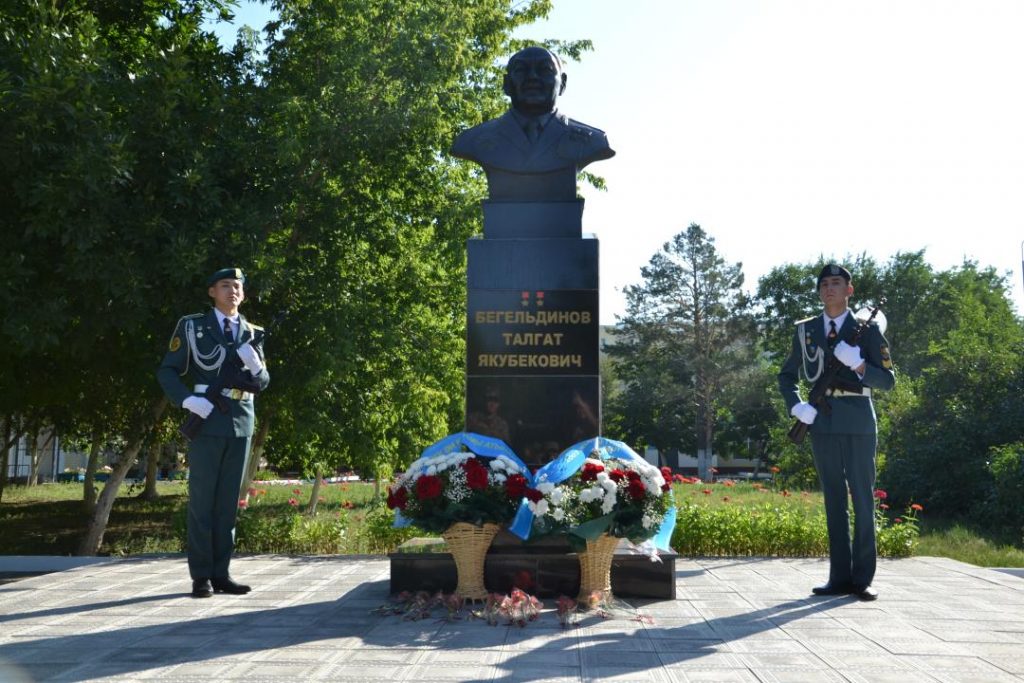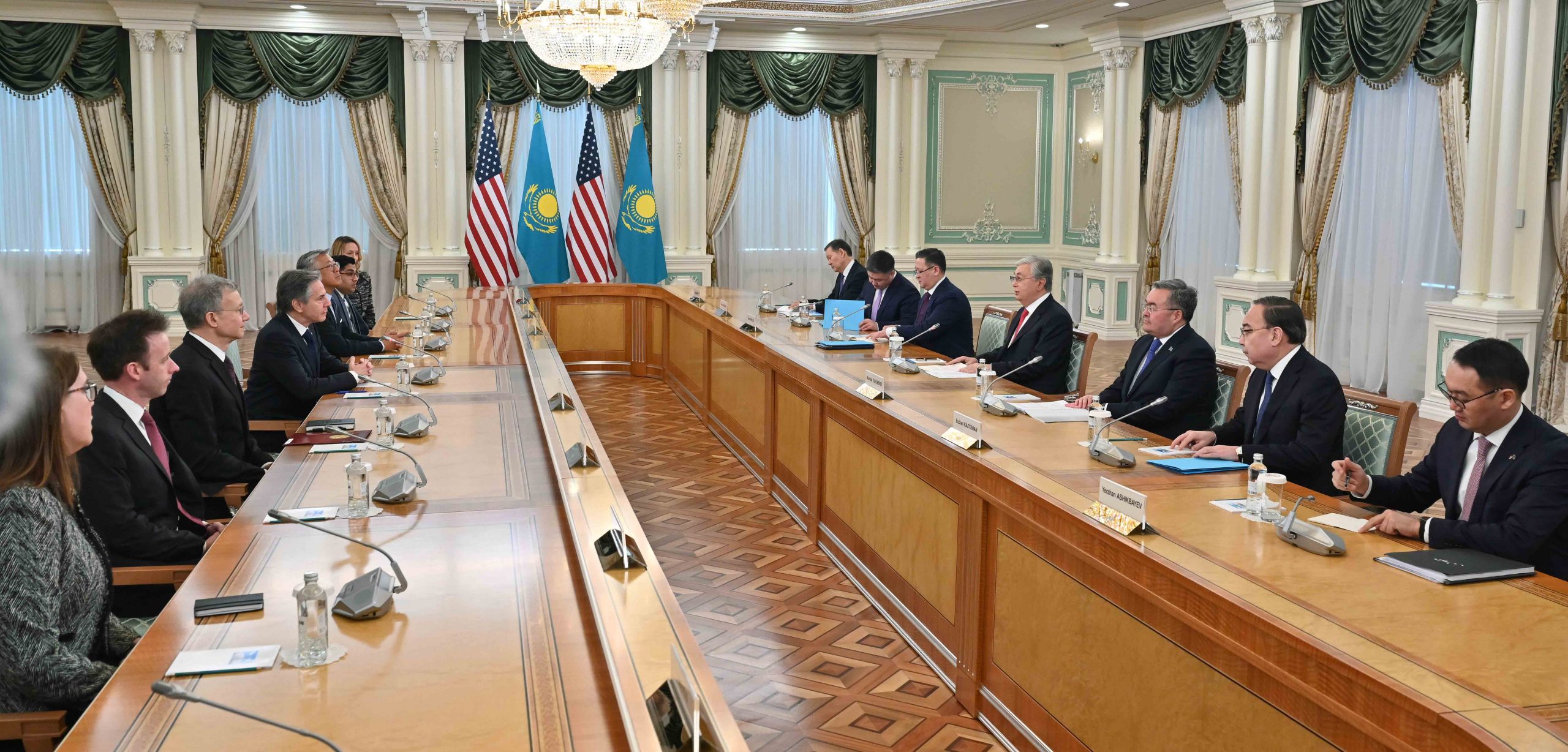LOS ANGELES. KazUnite – Is Marat Omarov a “drug lord”? How do the Mexicans who surrounded the Kazakhsinger and took photos recognize him? Why did the Kazakh composer not go when Donald Trump invited him? These and other topics were discussed in an interview with Marat Omarov, a resident of California, Honored Worker of the Republic of Kazakhstan, and singer-composer.
– How long have you been in the USA? What did you think? How is it affecting your creativity?
– It has been almost a year and a half since I came to the USA. Since then, many new things have happened in our lives. We are participating in many events. We witnessed the waving of our blue flag many times. Amid our Kazakhs, which bring the far away and do not alienate the near, there is quite a lot of fun and joy, weddings and holidays.
In December 2021, on the occasion of the 30th anniversary of the Independence of Kazakhstan, a ceremony of raising the blue flag of the Kazakh country took place in New York and Philadelphia. We came to participate in this event at the special invitation of the Consulate of Kazakhstan in New York. Consul General Almat Aidarbekov was at that time. It is worth mentioning that Mr. Almat and the president of the Kazakh-American Association of Pennsylvania, Zhuldyz Ismailova, sent an invitation and caused me to come here.
Kairat Nurtas also came with me at that time. On December 14 in New York, and on December 15 in Philadelphia, the ceremony of raising the flag of Kazakhstan took place. We held a special concert in Philadelphia. Then I went to Chicago. 300-400 Kazakhs gathered there and organized a big event. There are a lot of Kazakh citizens that I can’t find there. Most of the people who liked it very much wore national clothes. During the girl’s competition, our black girls also came to shine in national clothes. Everything was very suitable. The representatives of the Turkish society there were especially impressed by the organization of the Kazakhs and their national clothes. After that, I went to Los Angeles. My wife and daughter came here separately. My daughter took part in an American modern dance competition and won a prize. Since then we have been living in Los Angeles. In the meantime, I visited many cities in the USA. Sacramento, Orlando, and I visited Houston, Boston, San Francisco, San Diego, Washington, and other cities. A large event was organized in Washington on October 25 under the leadership of the Ambassador of Kazakhstan to the USA Yerzhan Ashikbayev, and several artists of our country took part in it. At that event, my new song “Kazakhs” was premiered. Apart from that, my songs “Dostaryma” (To My Friends), and “Elge sagynysh” (Missing the Motherland) were released. If we talk about the song “Kazakhs”, our blue flag is flying in the city of Las Vegas, witnessing the victory of many Kazakh athletes. After Gennady Golovkin, other athletes such as Zhanibek Alimkhanuly, and Shavkat Rakhmonov continue their winning ways. We had dinner with our Kazakh brothers from several cities such as San Diego and San Francisco at Zhanibek Alimkhanuly’s boxing party. At that time, let’s show that we are Kazakhs with a high spirit, strong faith, and descent. I sang this song “Kazakhs” to make the way of the older generation an example for the younger generation. In general, we participate in the Nauryz holidays in many cities, the Independence Day of our country, and promote our cultural values. We spend time with our Kazakh brothers and join together on such holidays. I understand that there is a wish in the minds of our Kazakh relatives here that we should not be separated from our national values.
We have 30 years of work in Kazakhstan. I am blessed with so many teachers. I am trying to smell the Kazakhness that I brought from Kazakhstan. How wonderful are the songs of our teachers Shamshi Kaldayakov, Abilahat Esbayev, Eskendir Khasangaliev, Aset Beiseuov, Nurgisa Tilendiev, Kazakh folk songs in general, songs of folk composers. I hope that young people will not forget those folk songs and songs of folk composers. At the same time, we have seen the teachings of such persons. I am preparing some projects with the aim that this will also affect young people. The goal of the project is to build a bridge of friendship between Kazakhstan and America in cooperation with the Kazakh society in America and the “Otandastar” fund.
– You say that you have been to many cities in the USA. What made you settle in Los Angeles? What projects are you working on there?
– Perhaps because I sing in several languages, since 2000 I have been a member of the World Composers Association in California. This is one of the reasons why I came to Los Angeles. Because the center of the world community of composers is located in Los Angeles. This association plans to hold a major event in the future at New York’s Carnegie Hall with composers from all over the world. Moreover, I joined the United Nations as a cultural consultant. I participated in many charity concerts there. Due to the worsening situation in Russia and Ukraine, Ukrainians from all over the world were invited, and charity events were held in several cities such as San Diego and Los Angeles. Then I participated and sang on behalf of Kazakhstan. I think it is a duty. That is, everyone, regardless of nationality, or race, I consider it my duty to serve the country. In the current negative situation, we should support people in terms of art and culture. My goal is to bring everyone together, to make the person who wants to grow up. At the same time, I gave a master class to young people in Los Angeles. Its purpose is to promote folk songs songs of folk composers, and folk instruments. For example, I play many instruments such as tambourine, guitar, drums, saxophone, and piano. I also lead a healthy lifestyle. I have experience in sports such as tennis, table tennis, checkers, chess, and yoga. I believe that all this should be shown as an example to young people. Moreover, we have our customs, traditions, national values, proverbs, and literary works left by our ancestors. I believe that it is our duty as representatives of the older generation to show all this as an example to our youth, as the saying goes.
It should be noted that invitations come not only from within America but also from European countries such as France, Germany, Czechoslovakia, and Great Britain, on behalf of the United Nations. Therefore, I am preparing my work on friendship in the direction of friendship, solidarity, and unity.
My daughter also participates in various contests in the USA and appears on the podium. My daughter Bibimariam Omarova, who leads her team and is a leader, intends to continue her artistic career and apply to the New York Film Academy. Shortly, I have a goal to film Kazakh history.
In addition, I signed a contract with one of the companies that has its place in the film industry. In the future, I have a plan to perform the soundtrack of films with it. I am also working on translating some of my songs, such as”Anarchy” (My Mother) into English, French, and Spanish. Because this is the goal of the World Union of Composers.
– You have given concerts in far and near foreign countries before. How much do you interact with artists from neighboring countries who currently live in the United States?
– Yesterday, in the Turkish center of Irvine, a feast was held with the participation of all Turkic-speaking brothers. It can also be called a charity event related to the earthquake in Turkey. Citizens of Kazakh, Kyrgyz, Uzbek, Turkmen, Turkish, and other brotherly countries took part in the event. There I presented my new song “Be safe, my people, be safe!” written by Talant Argyngali.
This event will be organized again. My goal is to join the heads of all our Turkic-speaking brothers and participate in showing humanity, spirit, and faith. It is a process that has come from our ancestors since ancient times. That is why I am going to tell the leaders of all the national communities that come there my proposal to open a common assembly or cultural center. That is, the idea is that a common organization should create a program for the national holiday or republican day of each country, and organize a common festival.
– By the way, it is said that the ex-president of the USA, Donald Trump, who listened to your song about the coronavirus, invited you to America. Tell me about it.
– My song “Coronavirus ket-ket” (Go away coronavirus) dedicated to the coronavirus was released to help young children maintain their immunity. After this song was widely distributed, the former president of the United States, Donald Trump, made a special invitation. The World Union of Composers contacted me and said: “You are among the 10 guests who will be received by the President of the USA. “Sing your song about the coronavirus at a charity event attended by Mr.Trump,” he sent an invitation. At that time, the next presidential election campaign was going on in America. According to the results of the election, Donald Trump did not become president, and the charity event was postponed. Now the lyrics of the song about the coronavirus have been changed and revived as a cheerful song called “Happy Days”. The melody remained the same.
– What song can you write next? What are your plans?
– We are planning to release a song dedicated to our brave brothers and brave citizens. We are still trying to educate students. Even before that, we have trained many students for 30 years. Before them, they sang on the stages of Europe and performed at the “Minuta Slavy” (Moment of fame) in Moscow. As the saying goes, “If you see a spring, open your eyes”, now I want to educate students here and invite them from Kazakhstan.
In 2016, at my creative party “My People’s Loved Songs”, the popular “MuzArt” group, Kairat Nurtas, Altynai Zhorabaeva, Maksat Bazarbaev, Zarina Omarova, Miras and Kuralai, Akbota sang many of my songs.
In the future, with the support of the United Nations, UNESCO, and the Union of World Composers, we plan to perform Kazakh folk songs and songs of folk composers with the accompaniment of various instruments and to give concerts in different countries together with our students.
– Have you dreamed of going to America since childhood? In the past, you accidentally met the famous Hollywood star Danny Trejo at a boxing party. Have you made contact with other art and film stars on the left? In general, what is the dream of Marat Omarov?
– Yes, of course, we dreamed of coming to America since childhood. When we were little, we were interested in watching American movies. I still remember watching the movie “Island Generals” when I was 7 years old. I recently found out that the film was shot in Los Angeles. In general, Los Angeles is the homeland of show business and cinema. There is a plan to try our luck in the film industry in the future.

We got to know the actors you mentioned, Danny Trejo, Mark Dakaskas, William Willis, and Kevin Costner. Recently, we saw Tom Cruise during the filming of another movie. Then we went to its premiere. We did not have time to go to the meeting of Brad Pitt and Leonardo Di Caprio. However, we met them recently at the first Asian film festival in a Japanese museum. Various proposals are coming from the specialists of the film industry. In the past, Mexicans confused me with a “drug lord” and offered to sing a duet. We will see how it will be. By the way, my daughter Bibimariam is choosing the profession of film director. On the one hand, that’s why we came here.

And my dream is to build a bridge of friendship. I wish that there will be peace in the whole world, that there will be peace and unity in every family, and that the whole human race will live in friendship, solidarity, unity, love, and affection. My goal is to educate good students. I work in that direction.
– Marat, you said that the New Mexicans confused you with a “drug lord”. Can you tell us a little bit more about that? At what event did you meet them? Who did you get confused with? What happened to the duo proposal?
– We went to Las Vegas for the trilogy between Gennady Golovkin and Saul Canelo Alvarez. Then Kazakh guys came from Chicago, San Diego, and other cities, and we all became fans of Golovkin. Dimash sang the National Anthem. There, the Mexicans were a big crowd. Even if I’m not mistaken, 90 percent were Mexican. We Kazakhs were probably only 10 percent. It seems that our voices were not loud enough.
At one point, as we were passing by, a Mexican was pointing at me and saying something in Spanish. They took me in the middle and took a photo. I am puzzled. “What’s wrong?” asked Murat next to me. I ask. They jokingly tell me: ” Marat, you are well known not only in Kazakhstan but also in America and Mexicans.” It’s a shame, those Mexicans make me look like a famous person and confuse me. Murat told them about me, that I am a singer-composer. Then the Mexicans invited me to sing a duet with that famous drug lord. Who knows it? We will see. In general, here I am constantly compared to world-famous actors and other famous people. Especially for people with mustaches. There were also calls for castings.
– Is it possible to see you in Hollywood movies in the future?
– Maybe. Everything is possible in this life. You just have to work hard.
– Thank you for the interview! I wish you luck!
Interviewed by Nurdaulet Kakish






